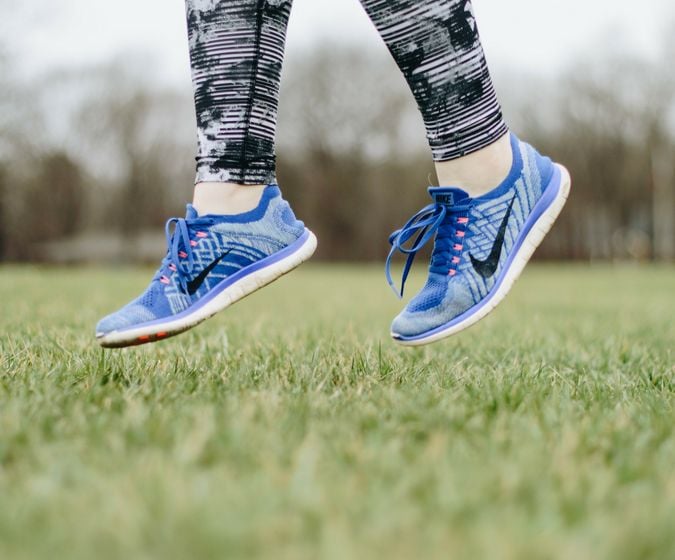By Ben Fletcher
Healthy Habits for a Healthier Lifestyle
That's because faddy diets, detoxes and extreme exercise routines generally don't work.
Instead, follow our nutritionist and exercise physiologist's advice and create some new realistic and achievable healthy habits in 2019, which you can carry with you for the rest of your life.
Whether it's eating better, or getting more exercise, our tips below will help you get started.
1. Set an emotional goal
By setting yourself an emotional goal, you're 30% more likely to stick to a new healthy habit. So, really think about the reason why you want to eat healthier or get fitter.
It's best to aim for something long-term, rather than a quick fix. For example, it could be that you want to live longer for your children, or maybe you'd like to feel more energised to help improve your productivity at work.
Write this goal down, stick it up around your house, or pop a post-it note on your screen at work to give yourself regular reminders of what it is you want to achieve.
2. Start small
Once you know what you want to achieve, you're going to do it.
It's really important to be realistic, so don't set the bar too high. Your long-term goal is not going to happen overnight, so set small, achievable targets to help you get there.
Maybe it could be that you're going to try one new exercise every week, or increase the distance you run by mile each training session.
When it comes to healthier eating habits, you could start out by trying one new recipe a week, or testing out one new ingredient you've never had before - you'll be amazed at how quickly your confidence and cooking repertoire grows!
Doing it this way means it's maintainable and these little successes will help you stay on track.
3. Planning
Most of us lead busy lives, so it's good to plan your new habits into your schedule - we'd recommend setting aside a 20 minute slot every weekend to think about the week ahead. In this time, you can:
- Plan your training sessions - write down the days you're going to go the gym, go for a run etc. - of course, these can be flexible if something comes up.
- Think about your meals - decide on what you're going to eat during the week and write down all the ingredients you'll need to pick up at the supermarket.
- Plan a time to prep your meals - Sunday is often best, as you can get yourself set up for the week (in particular, prepping your breakfast and lunch). If you prefer to cook as you go, that's fine too just having the ingredients ready to prepare dinner after work, or when you get in from the gym will help you stick to your new habits.
Without setting your week out in this way, it's likely that you'll just follow the same old routine, which have brought the same old results.
4. Monitor your progression
t's also important to remember the power of reflection.
We're not saying you should weigh and measure yourself every day, but it does help to regularly monitor your progress.
It could be as simple as keeping a training diary, recording the number of exercise sessions you do a week, or monitoring the amount of weight you lifted at the gym, for example.
You could also write down how you're feeling each day, your energy levels, sleep quality and appetite, to see how your new habits are impacting your daily life.
Regular reviews allow you to see how well you're doing, which should encourage you to stick to your new regime.
5. Remember, you're only human
Make sure that you enjoy your successes, and if you miss a day, or fall off the wagon, don't dwell on it. Just pick yourself up and start again fresh the next day.
Likewise, as this is a plan for life, moderation is key. Incorporate a 'treat day' once every 1-2 weeks to help keep you focused on your goals. Don't let your social life suffer either. An occasional night out with mates, or a takeaway once a month isn't going to do you any harm and it's a good way to celebrate what you've achieved.

